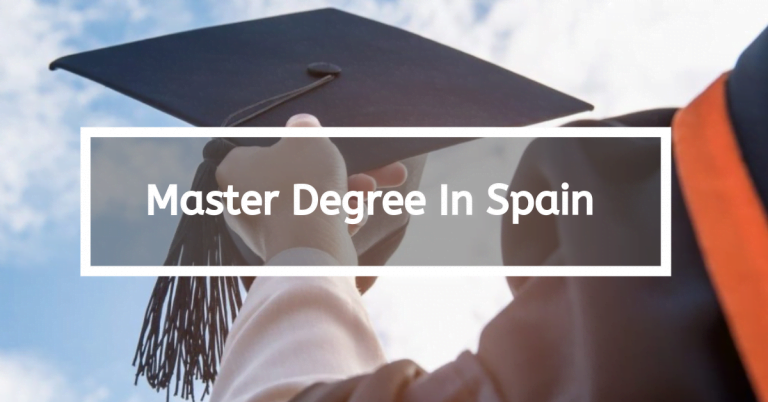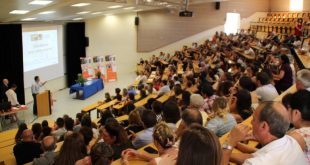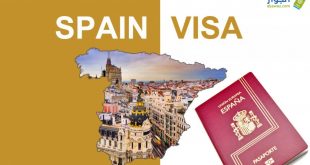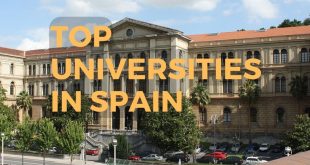Studying Masters in Spain? It’s an amazing opportunity for your higher education because of the country’s economy and developing your skills in a language easily recognized! In this article, we will be talking about Studying Masters in Spain.

Table of Contents
Master’s degree in Spain
The Master’s program in Spain can take about 10 to 24 months and represents 60 to 120 ECTS, known as the European Credit Transfer System and Accumulation System. The master’s programs may include modules (or asignaturas), and can be basic (asignaturas troncas), or mandatory (asignaturas obligatorias), or optional (asignaturas optativas or de libre elección).
Doing your master’s thesis, with credit rating can range from 6 to 30 ECTS credits at the end of the program, however, it will represent about a quarter of the total value of the course.
Master courses offered through the Erasmus program are very popular and common in Spain. Two years in total and includes periods of studying abroad, and training courses. However,
The Erasmus Masters shouldn’t be confused with the “inter-university” Masters cooperatively provided by a group of Spanish institutions.
Official and non-official master’s degree in Spain
One of the features of Masters study in Spain’s education system is that there are two different categories of university degrees, either at bachelor’s or master’s levels.
Official degrees are valid in Spain. The European Higher Education Area (EHEA) validate it as well as most international university systems according to government regulations,
In the EHR system, Special University Degrees created by universities without government approval are not recognized. Also known as non-official degrees.
Some of the Master’s qualifications fall into this category, with titles such as “Non-official Masters” and “Specialized Masters” not to mention diplomas and other certificates. Generally, these qualifications do not have any value of ECTS credit and do not require independent research and thesis assignments because it focuses instead on professional skills.
Applying for a Master in Spain
According to the Bologna process, When applying for Spanish Master’s programs – you will need a Bachelor’s degree in a related field. Additional requirements may vary between institutions and courses. Mostly, You have to provide the following documents:
- Academic degree of your previous studies.
- A CV indicating your experience or research relevant to the course.
- References (commonly desirable to include a university teacher).
- Proficiency documents in English and/or Spanish as required in the course.
- Personal statement showing your interest in the course and its relevance for your academic and career goals.
- Recognition of academic accreditation and accreditation of foreign qualifications for the course you are applying for.
If your university qualifications pass the EHEA check, it’s valid. In other cases, your university must be able to review and confirm your qualifications. For that to happen, any accreditation is usually through an official body within the Spanish Ministry of Education, and requests usually start at Spanish embassies or consulates. You will usually need to provide the following documents:
- Copies of documents of nationality.
- Copy of the degree you are applying and is accredited in Spain.
- A document detailing the studies you have conducted to receive your qualification, including information about course content, and hours.
- Paying the application fee (about €90-€150).
Required documents to study at Spanish universities
Spain applies somewhat strict guidelines for documents submitted for official purposes, such as application to a university. In particular, the documents issued abroad will need to be accompanied by a “sworn translation” into Spanish.
Contact the diplomatic and consular representatives in Spanish embassies abroad or foreign embassies inside Spain. Similarly, independent translators also provide this service within the country.
Masters in English in Spain
Some universities in Spain have numerous masters programs entirely in English. Other offer bilingual programs, where half of the program is in English and the other half in Spanish. Moreover, even if their programs are provided in the English language, many Spanish universities offer Spanish language courses to international students. This is an opportunity to get more language skills which will further ease your everyday life in Spain.
Among the institutions renowned for their programs using English as the medium of education, is the Autonomous University of Barcelona. Programs that are 100% in English include International Business, Plant Biology, Genomics, and Biotechnology, Advanced Medical Skills, or Advanced Mathematics to name a few.
The Autonomous University of Madrid also offers Master’s Degrees in Bioinformatics and Computational Biology, in Biotechnology, International Economics, or in English Applied Linguistics… etc. in English.
Read also our article on How to Study in Spain in English, as well as our ranking of the top universities in Spain.
Cost of Masters Programs in Spain
Tuition fees in Spain are calculated per credit, rather than per year or per semester. In other words, the amount you pay for a program depends on the number of ECTS credits you need to get to complete this program. The government then defines a cost per credit that applies to both private and public universities in Spain.
The cost of a master’s program in Spain is €1620 on average. However, it depends on the institution and the number of credits needed to complete this degree. Moreover, if the program requires additional facilities or resources, the price may get higher. Also, application fees and additional administrative costs may apply. Lastly, non-UE international students may have to pay superior fees compared to local and students from the UE.
Discover also the cost of living and study fees in Spain for international students.




 Aljawaz Your guide to study abroad
Aljawaz Your guide to study abroad













